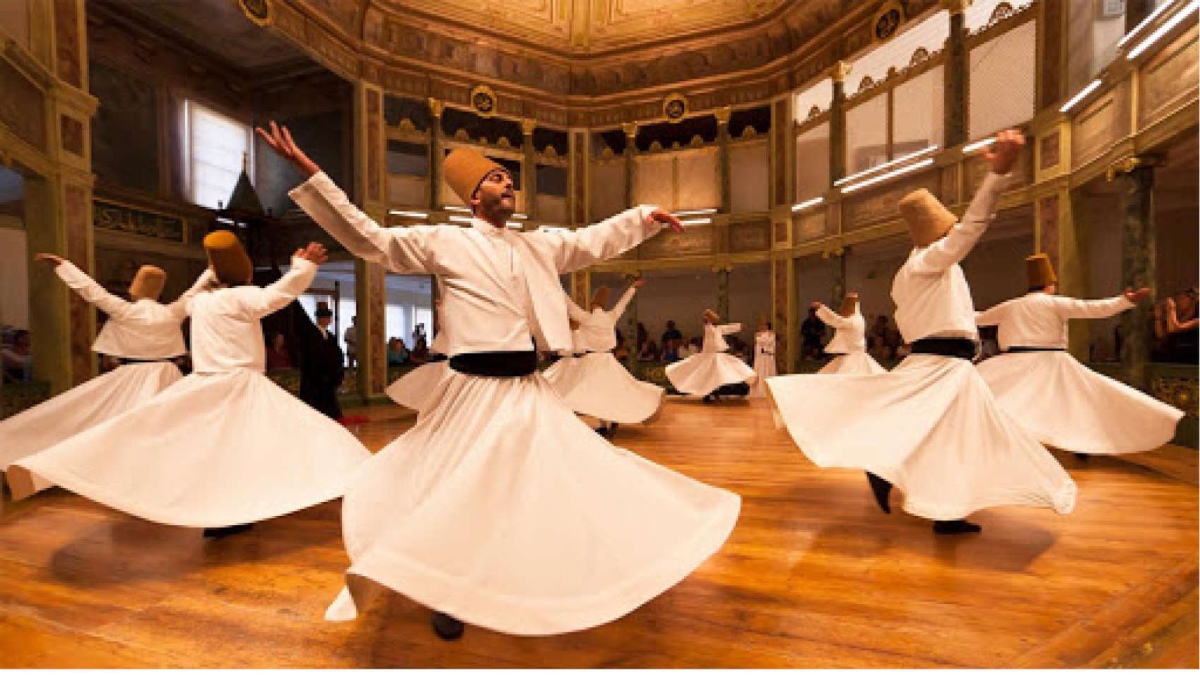
Man wants to make everything permanent. Man wants to epitomise things. He wants to epitomise his life and himself. He wants to epitomise what he does. He builds big statues. Cultures want to produce symbols and monuments for posterity, to marvel at and remember them by, whether in the name of religion or to establish cultural supremacy. Man wants to be permanent on earth and he wants to make a permanent abode on earth. Once all his attempts are lost in oblivion, he says that he wants to do something that will be remembered. Then he tries to epitomise his deeds. The world around him is changing every moment and man is searching an abode on earth where he can live permanently. It is a paradoxical situation.
About 2500 years ago, Buddha said that there is change. He understood that everything was changing. He left in search of that which never changes. Buddha fathomed the depths of everything that changed to find out the unchanged. Only two types of people exist on earth. The first is who understands, like Buddha did, that there is change and change to find out that which does not change. The second are those who try to struggle with change to try and make things permanent.
In fact, there exist two ways of looking at existence. One is to try to conquer or domesticate it, like science is trying to domesticate the world. It is not able to fathom it, although it may be able to fathom small fractions of it. It is like the one who wants to stay here forever but cannot. Because existence cannot be divided—existence is one whole thing that cannot be divided or analysed in fractions or in parts. Therefore, science cannot understand existence.
But the second type is to not struggle with change but become one with existence, which is unchanged. The second way is to be in love with it, without any struggle. Life becomes a deep, mystical, beautiful, unending love affair that is limitless when you are friends with it. The struggle disappears as there is no need for any enmity with change. You don’t have to conquer it but be friends with it. There appears a deep love between you and existence, a deep likeness that gives you deep empathy and breeds deep compassion in you. You see Buddha, who is full of compassion. His compassion is so potent that it can heal wounds on the entire earth. That is the beauty and power of compassion, which comes to you by embracing the second type. But whether you conquer the world to epitomize your life or become friends with it, the choice is yours.
Sufis understand this trick. They look at existence as the beloved. They know the art of conquering the world by being friends with it. They call this friendshi ishq. Sufi mystic Omar Khayyam says in his Rubaiyat, “I am going to drink, to dance, to love. I am going to commit every kind of sin because I trust God is compassionate—he will forgive. My sins are very small and his forgiveness is immense.” When you become one with existence, one with God, you become friends. Omar Khayyam knows that God is nothing but pure compassion and love. He is limitless in existence, He is there permanently, and He is the one epitomized by His existence. We have a small life of 60-70 years and what we do here is nothing when compared to the immense compassion, forgiveness and love that existence has for us. Love is a flow. You flow. That will become a feeling. And when you feel and when you become ‘the feeling’, you become one with yourself, one with existence, and you become the one who is not different from existence. You are existence.
But the one who is trying to epitomise himself creates statues of God and calls everything else sacrilegious. Earlier, he had been trying to epitomise himself, and when he was told he could not, he has been trying to epitomise God. Life is change and we cannot epitomise ourselves by making statues of God or ourselves or by making a permanent abode like the sandcastles that kids build to destroy.
Understand that there is something that is unchanged in you. There is a certain sameness in you that remains the same and ‘unsameness’ cannot affect it. In fact, unsameness cannot be without that sameness. Sameness is the canvas on which unsameness can happen. Something that remains constantly the same, that sameness is you. That sameness is the canvas on which your unsameness takes place.
In fact, among the change, that which is unchanged remains unchanged. Because for change to happen, the unchanged is needed because ‘unchangeness’ is the canvas on which ‘changeness’ takes place. For example, sound can happen only on the canvas of silence. For sound to be, silence is needed. Similarly, to understand change unchanged, you have to always understand that you are changing the unchanged. You are the change unchanged. Because you know you were the child, the young and the old, you are the knower of change. The knower always remains unchanged.
Now, the question is, how can you be aware of the unchanged? Your unchanged sameness is there in you as a witness but you are not aware of it. Life is to be aware of the change. Whenever something changes, it creates a gap and you take immediate notice of the change, because that is the primitive trick of survival, which makes consciousness take notice so that you can correct the course of survival.
Everything in existence is changing: The stone, the tree, the flower, the bird, the earth, the stars. Everything is changing. All are changing manifestations of one unchanged existence. The mind cannot make us search for the change, because the mind is the change. Love is the sameness that is unchanged. But the mind, which is the change, wants everything to be permanent. Everything is permanent in the realm of the unchanged. To become aware of the eternal in you, be the change unchanged.
What is changing and what is not changing? Maulana Jalaluddin Rumi devised the technique to be aware of the unchanged in the change. He would whirl for hours. You see whirling dervishes—they call the ceremony dhikr. Rumi whirled for 36 hours to know the unchanged being. In whirling for hours, the moment comes when one sees oneself not moving. The entire body moves but something there does not move. It remains unmoved. That is the unchanged being. That is the moment religion happens to you. Life happens to you. And the ecstasy of the living dawns upon you.
The author is a spiritual coach and an independent advisor on policy, governance and leadership. He can be contacted at arunavlokitta@gmail.com.















